Are you considering diving into an exciting research project but need funding to bring your vision to life? Writing a compelling grant proposal is essential in securing the financial support you need. In this article, we'll explore a template for crafting a persuasive request for an academic research grant that clearly outlines your objectives and the potential impact of your work. Ready to unlock the secrets to a successful grant application? Let's dive in!

Purpose and Objectives
The purpose of the academic research grant application is to secure funding for an innovative project focusing on renewable energy solutions, specifically exploring new methods of solar energy conversion in urban areas. This project aims to address the urgent challenge of climate change by developing efficient and sustainable systems that can be integrated into existing infrastructures. Key objectives include conducting extensive laboratory experiments to test novel photovoltaic materials, collaborating with local governments to assess the feasibility of implementation in metropolitan settings, and engaging with community stakeholders to promote awareness and adoption of these technologies. With the ultimate goal of reducing urban carbon footprints, this research will contribute significantly to advancing knowledge in the field of sustainable energy and inform policy decisions regarding renewable energy integration in urban planning.
Significance and Impact
Academic research grants play a crucial role in advancing knowledge and innovation within various fields, including social sciences, natural sciences, and humanities. For instance, the National Science Foundation (NSF) and the National Institutes of Health (NIH) provide funding that enables researchers to explore groundbreaking topics such as climate change, disease prevention, and educational methodologies. By receiving financial support, investigators can conduct experiments, gather data, and publish findings that significantly impact societal challenges. A successful grant application not only highlights the potential benefits to academia and industry but also emphasizes the importance of addressing pressing issues like public health crises or environmental sustainability. Each funded project contributes to the broader body of knowledge, inspiring future research and leading to technological advancements that benefit communities and economies globally.
Methodology and Approach
The proposed methodology for the academic research grant encompasses a detailed qualitative and quantitative approach. This study will utilize surveys to gather data from at least 500 participants across five universities in the United States, exploring their academic experiences. Semi-structured interviews will complement this, aimed at 30 faculty members to gain insights into instructional methods. Data analysis will employ statistical software, such as SPSS, for quantitative data, while thematic analysis will be used for qualitative data from interviews. Furthermore, collaboration with the Institutional Review Board (IRB) will ensure ethical standards in participant recruitment, data collection, and confidentiality measures. The approach is designed to provide a comprehensive understanding of the academic environment's impact on student success, with the potential to influence educational policies significantly.
Budget and Funding Details
In the realm of academic research, precise budget and funding details are crucial for securing grants from institutions such as the National Science Foundation (NSF) or the National Institutes of Health (NIH). The comprehensive budget should encompass expenses exceeding $50,000, including personnel salaries, materials, and travel costs associated with conferences that facilitate knowledge dissemination, such as the American Educational Research Association (AERA) annual meeting. Furthermore, funding requests may necessitate justification for indirect costs, potentially reaching 30% of the total request, to cover administrative overhead. A detailed budget narrative, explaining variances and demonstrating the project's alignment with the funding agency's mission--such as advancing scientific knowledge--can enhance the proposal's strength, increasing the likelihood of receiving financial support for groundbreaking research initiatives.
Applicant Qualifications and Experience
The applicant possesses a robust academic background, holding a PhD in Environmental Science from Stanford University (graduated 2020). Extensive research experience includes a three-year project on climate change impacts in coastal ecosystems, funded by the National Science Foundation (NSF) with a budget of $150,000. The applicant published six peer-reviewed articles in journals such as "Global Change Biology" and "Environmental Research Letters," enhancing visibility in the scientific community. Additionally, collaborations with institutions like the Scripps Institution of Oceanography have fostered innovative methodologies in data collection and analysis. The applicant has also supervised undergraduate research projects, mentoring over 20 students, thereby contributing to educational development within academia.

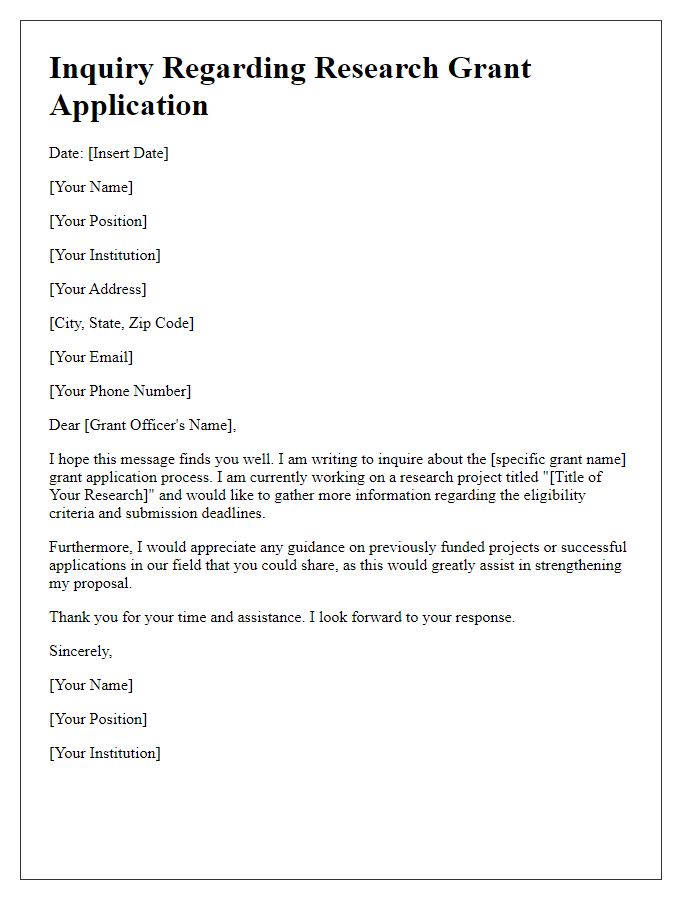
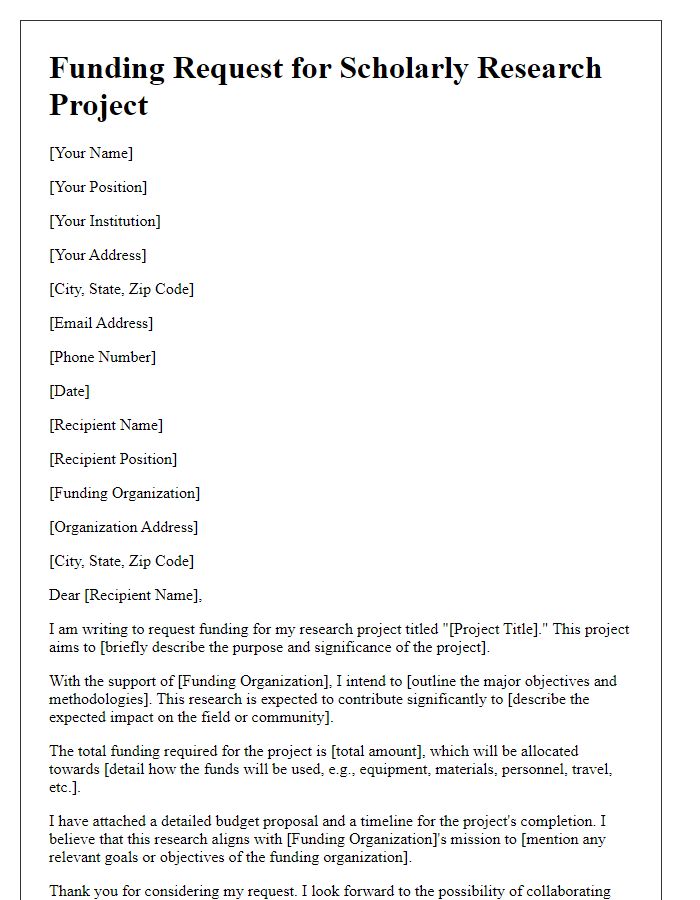
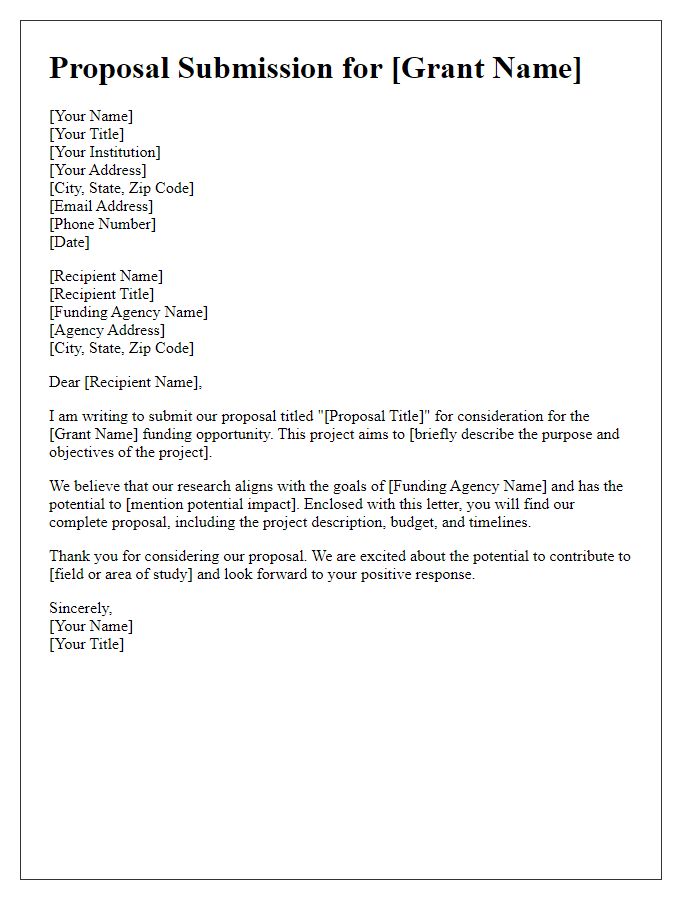
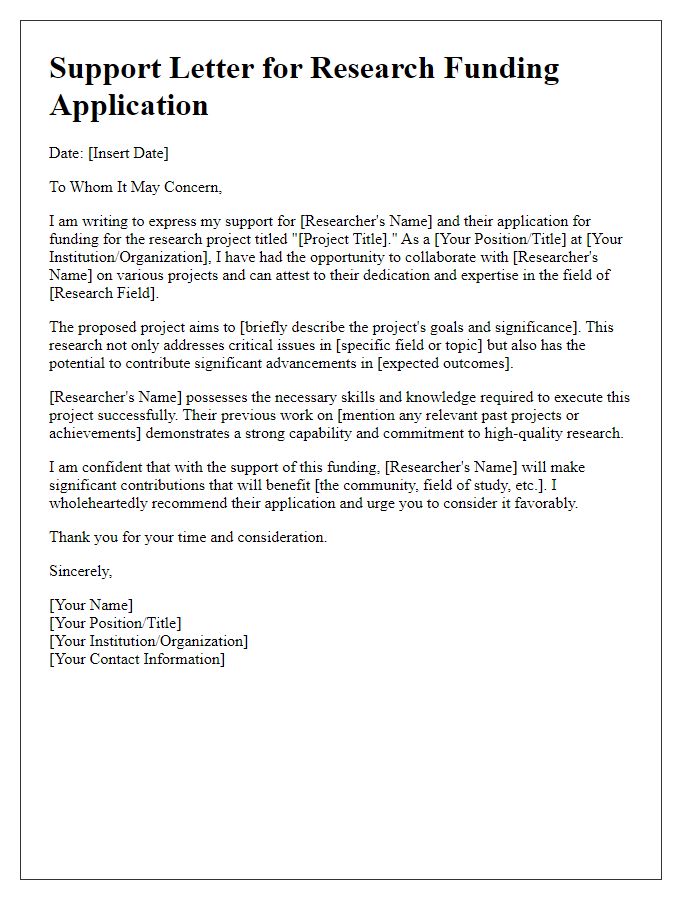
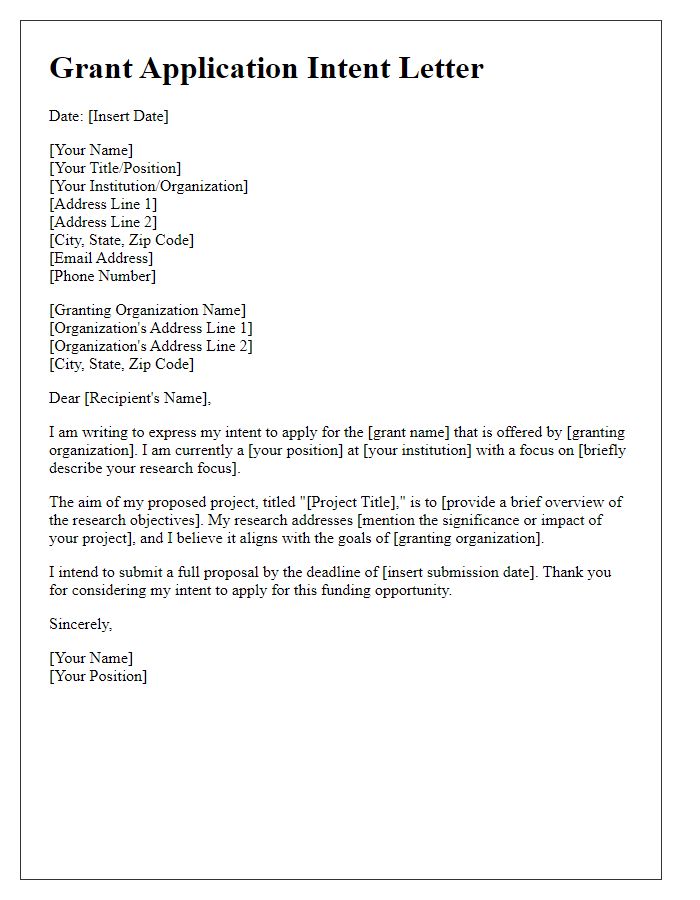
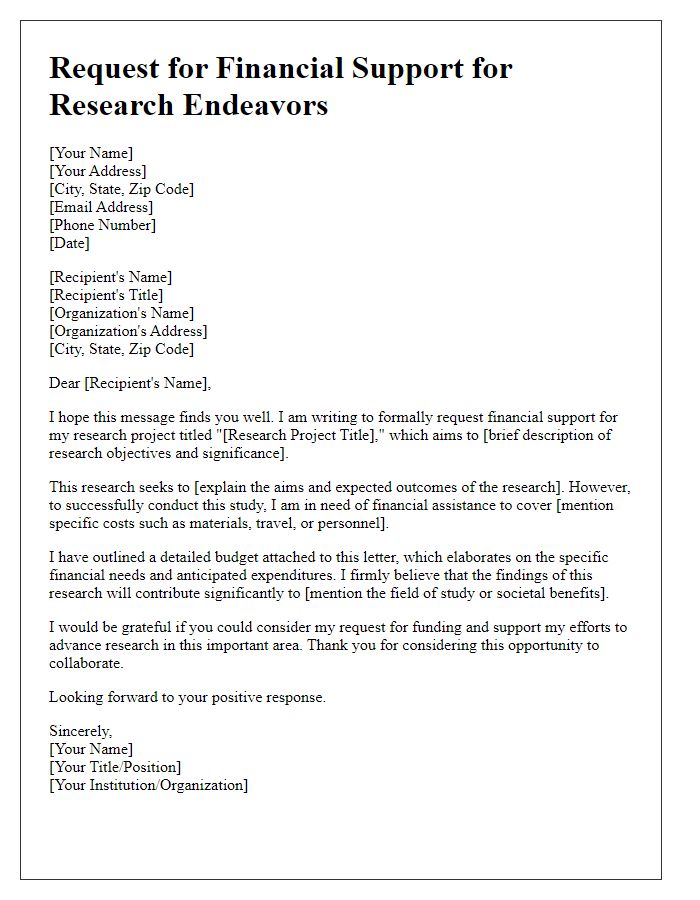
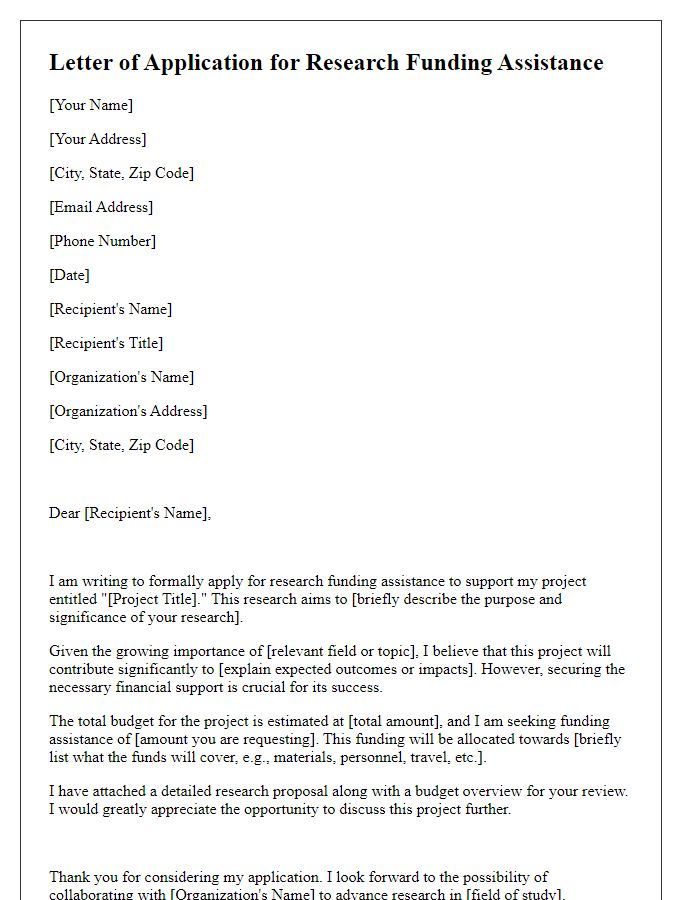
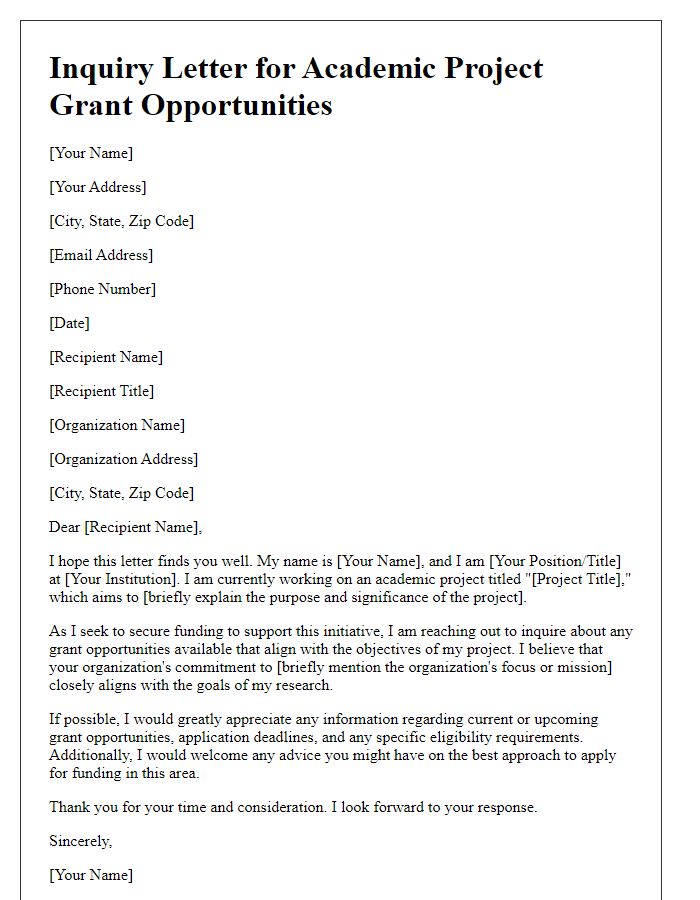
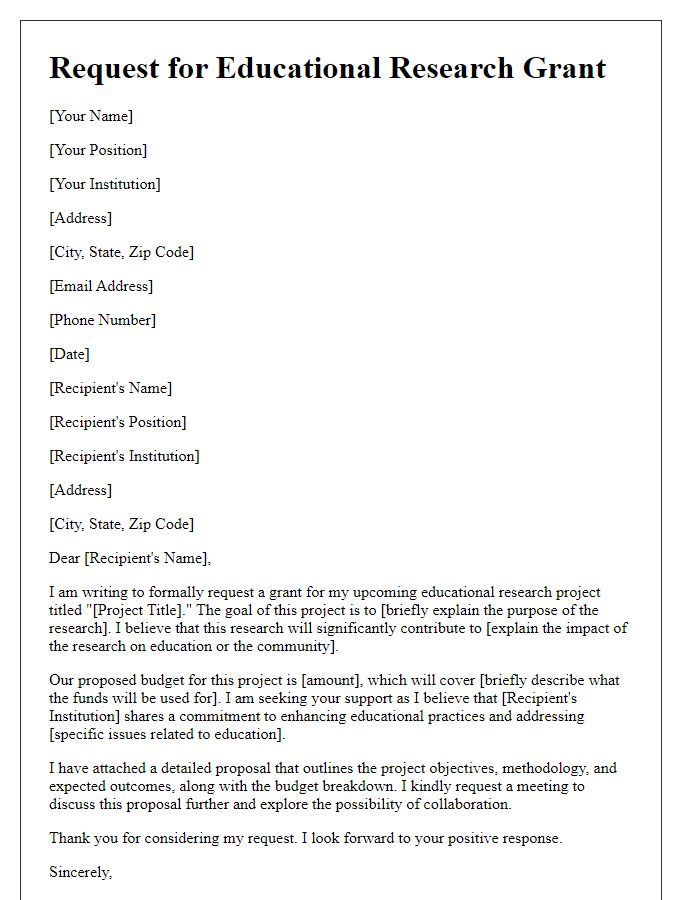
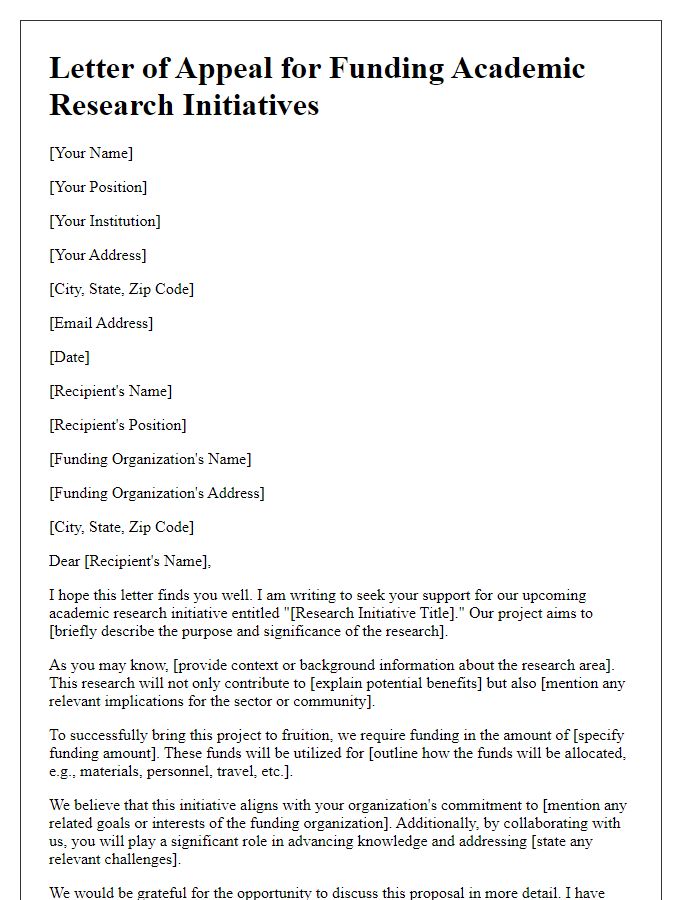


Comments